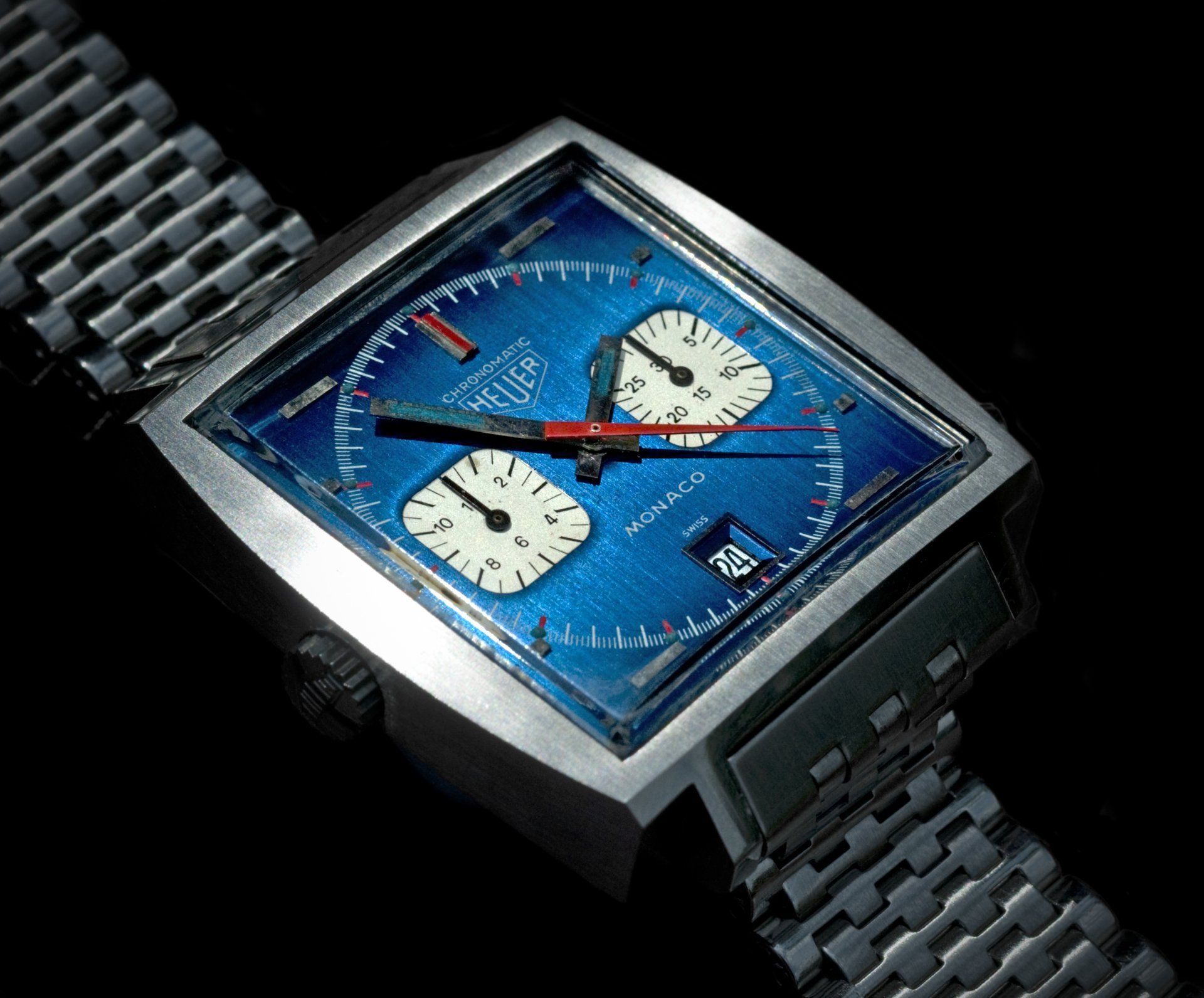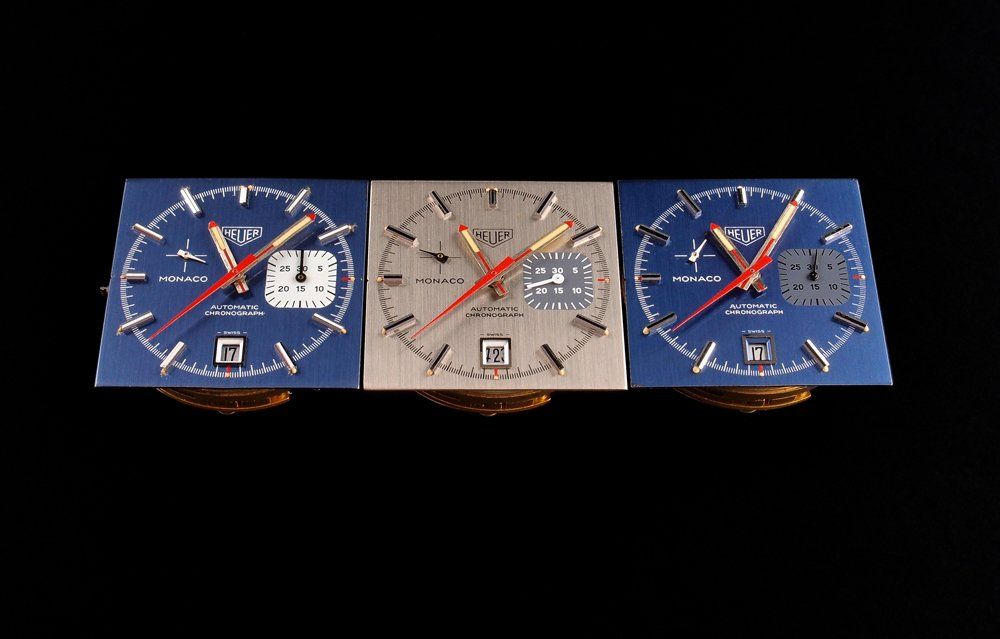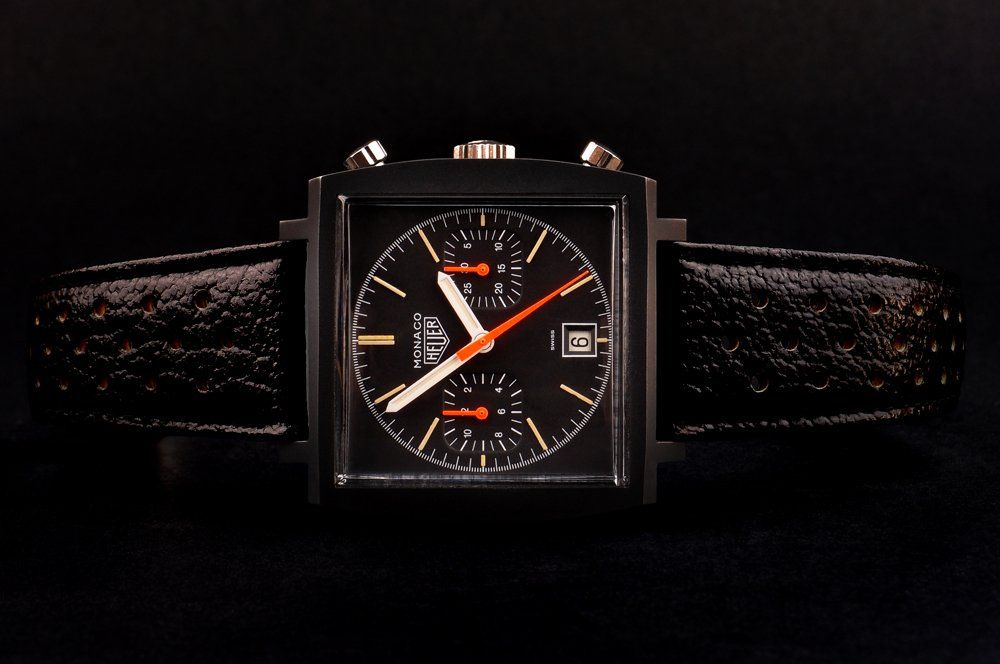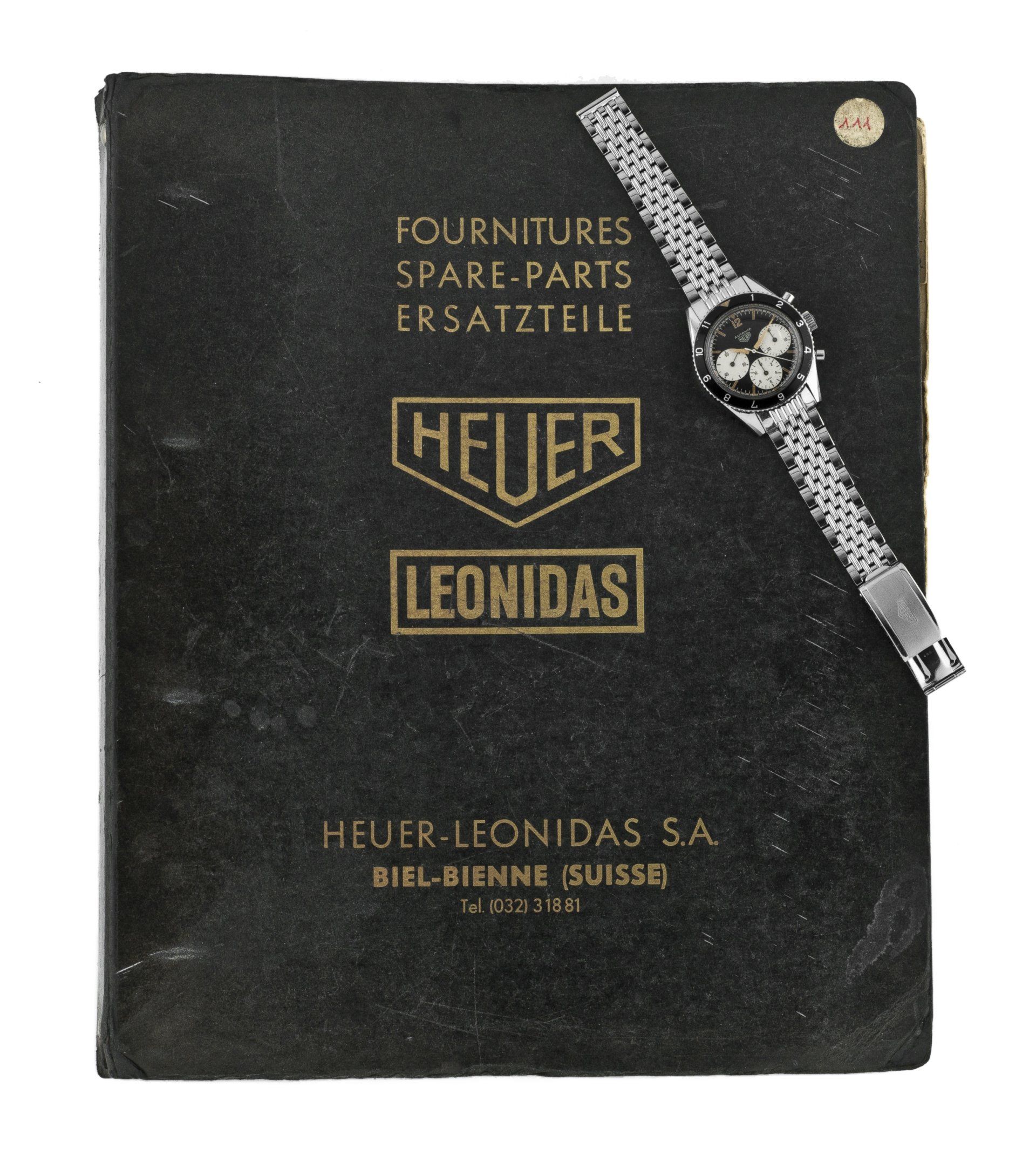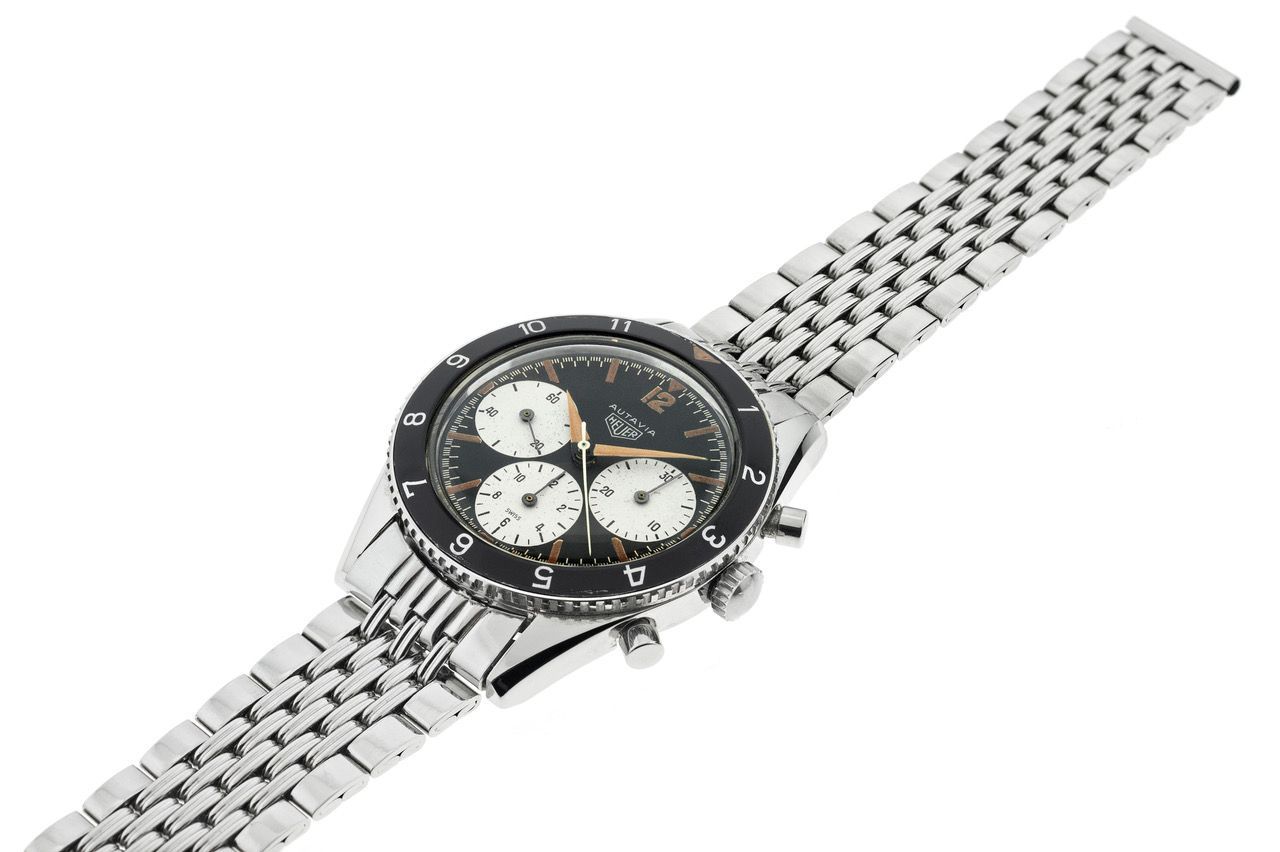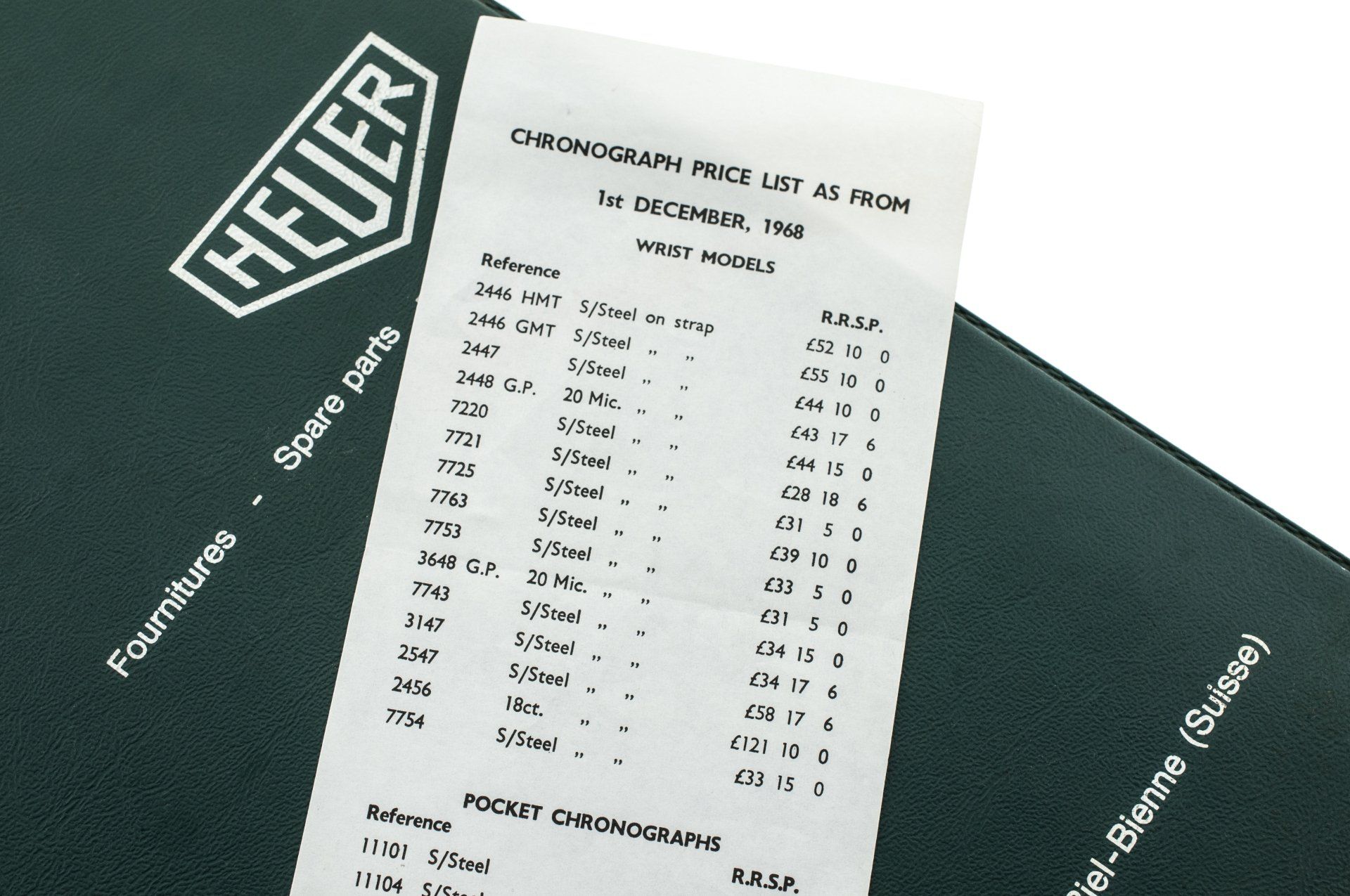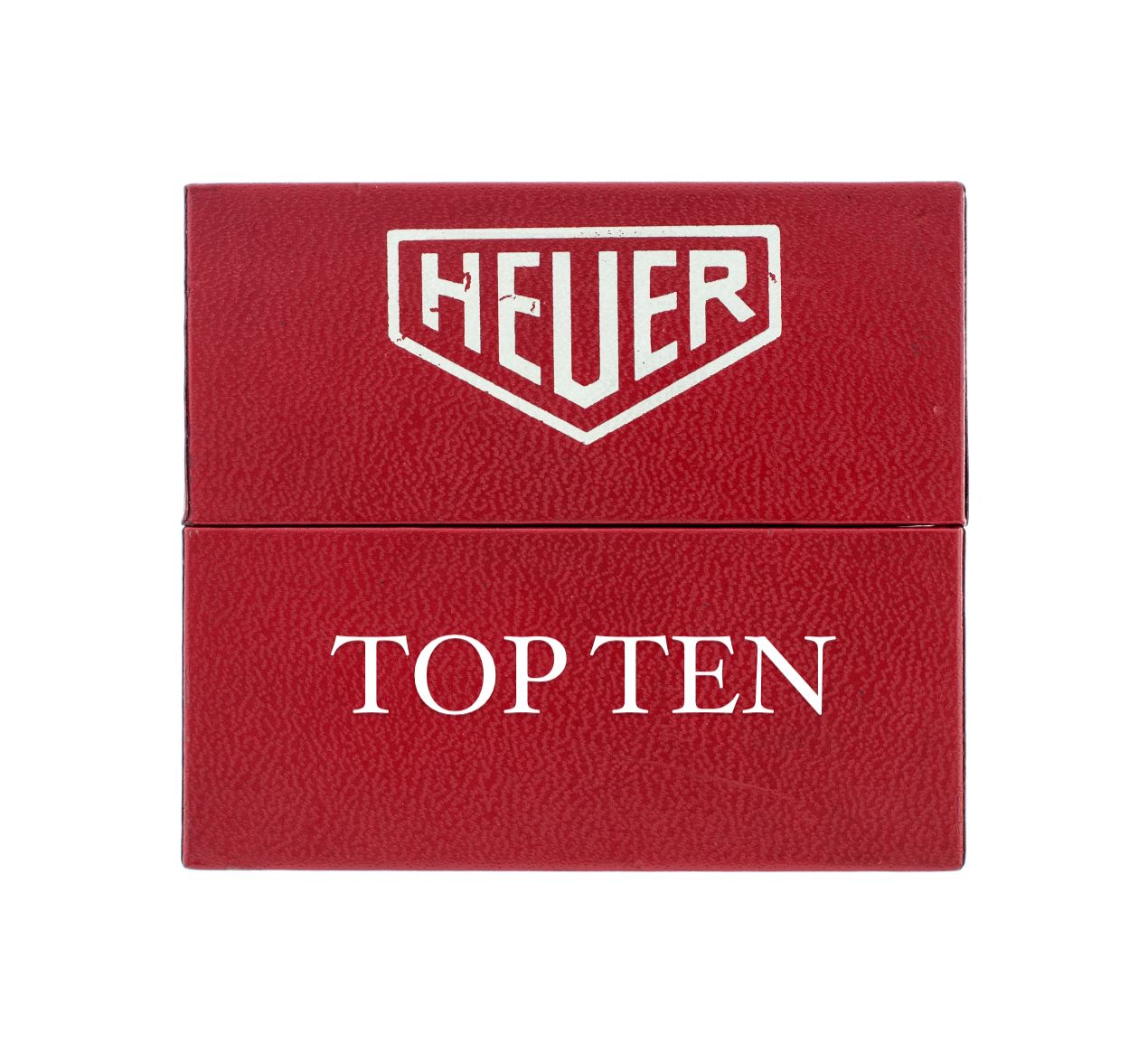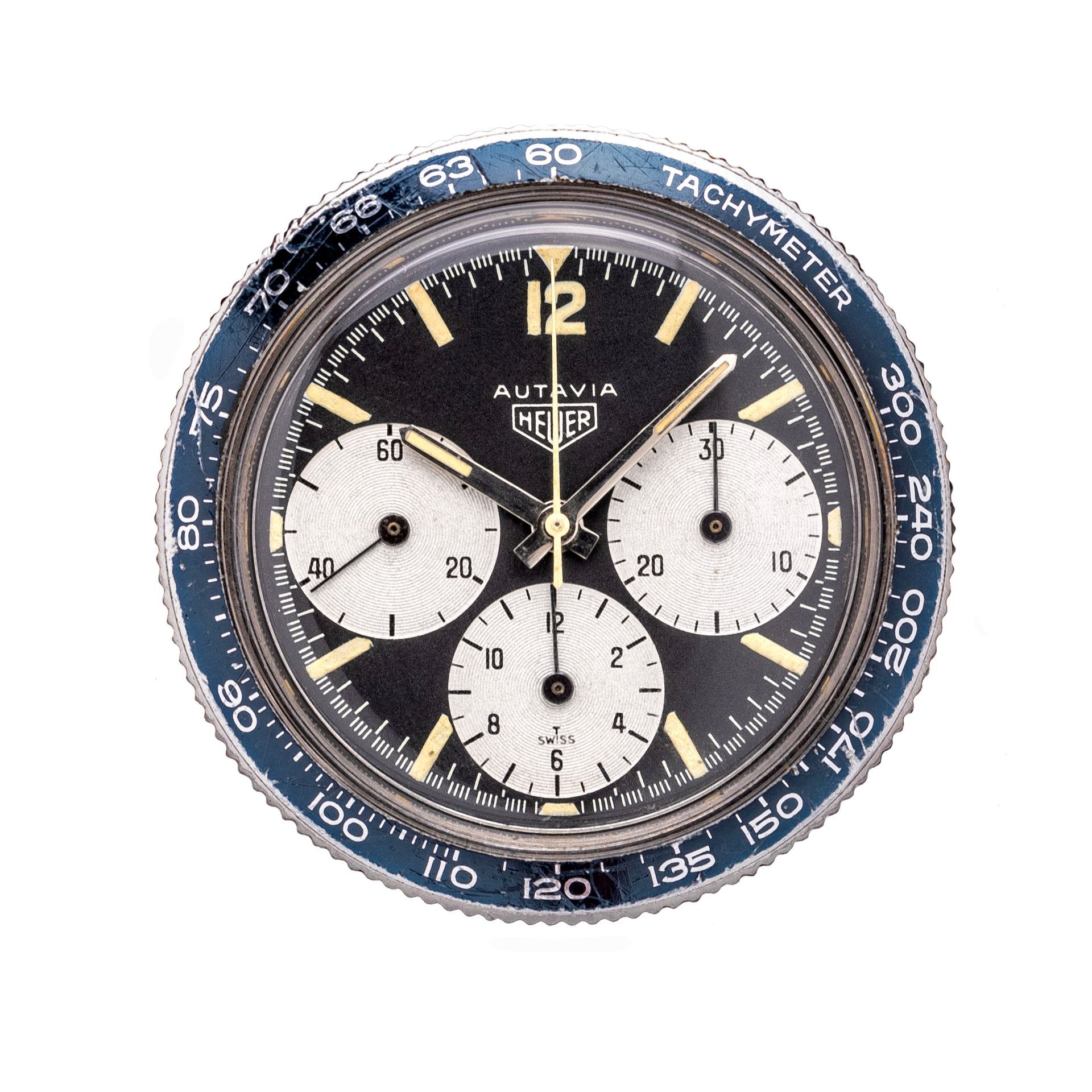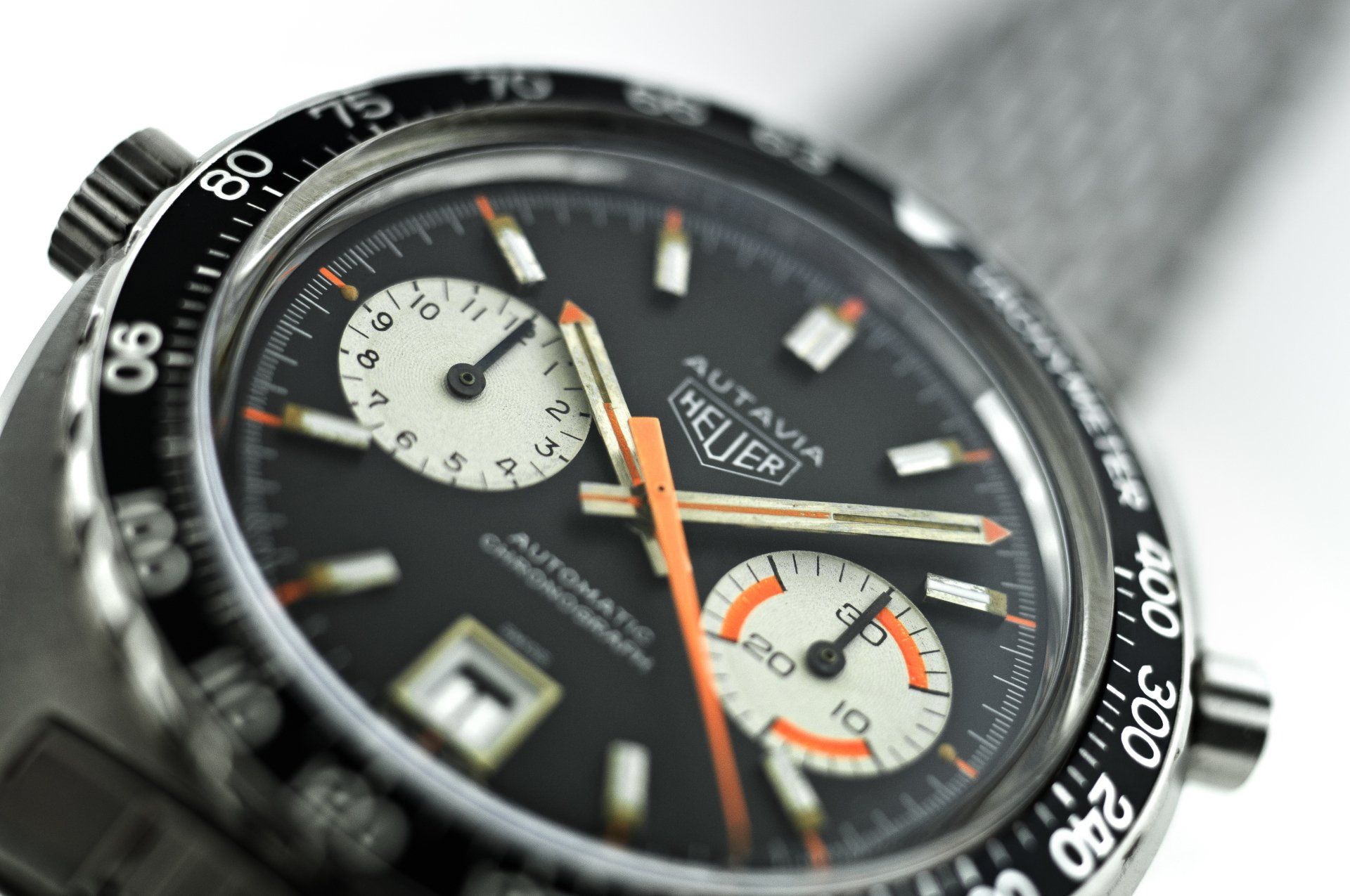The Vintage Heuer Monaco
It's hip to be square? Made cool by Steve McQueen back then as now, although not the easiest of chronographs to wear there is no doubt that there is nothing quite like a Heuer Monaco!
The first Heuer Monaco was unveiled simultaneously in New York and Geneva on 3rd March 1969 and was something of a breakthrough, being one of the world’s first automatic chronographs. The watch had a distinctive square case (Piquerez designed) and was named after a famous Grand Prix circuit. Heuer were looking for a name that would reflect glamour and appeal to the fashionable set and, as there was already a Monte Carlo dashboard timer, the name "Monaco" was chosen. The Monaco forms the "holy trinity" of vintage Heuer collecting, along with the Autavia and Carrera.
The initial 1133B Monacos were driven by the world’s first automatic movement (the Calibre 11 born out of Project 99) and featured metallic blue dial paint. The fact that this dial paint was notorious for degrading (moisture was its enemy) explains why watches with mint dials are seldom seen. These initial watches first used plain squared off steel hands with blue lume, and then later the more usual yellow/cream lume. Later "improvements" led to the std production model we know today as the McQueen (after being worn by Steve McQueen during filming of Le Mans in 1970). This used a matt paint finish and red stripe hands that would remain the same until production ceased. The final production Monaco was the 740303 PVD version (dubbed the “Dark Lord”) which we think appeared at some point in the mid to late 1970s, and was driven by the manual wind Valjoux 7740 movement. This PVD reference held the vintage Heuer auction records until the Autavia 2446 1st execution and 3646 Indy eclipsed it in 2017.
Although the avant-garde Monaco was ahead of its time, it was well received (certainly at first) with initial sell-outs in many locations. However, by the mid 1970s, the market for Heuer and Swiss watchmakers in general was a tough one. The oncoming Quartz revolution was part of the reason for these tougher market conditions (which saw sales fall sharply), but the sudden devaluation of the US dollar against the Swiss Franc, which effectively almost trebled the price of a Swiss timepiece in a short time, was another factor. Its cutting edge design, allied to its not inconsiderable retail price of around $220 at launch, meant that less than 10000 examples of all dial variations (the std production version 1133B being the most popular) were created during its production lifecycle but, in reality, that may not be as bad as it sounds. To put this volume into perspective, Heuer estimated that they only sold circa 15000 chronographs in total during 1970 and 12000 in 1971. For further comparison, it is estimated that the 1960's Autavia screw-back case series sold less than 15,000 units in seven years, and the 1960's Carrera less than 20,000 in seven years.
To read more about the vintage Heuer Monaco chronographs click on the link below to preview the Heuer Monaco Design Classic book, which is filled with beautiful photographs and important collector info.
Note: Please do not reproduce these images without permission.
